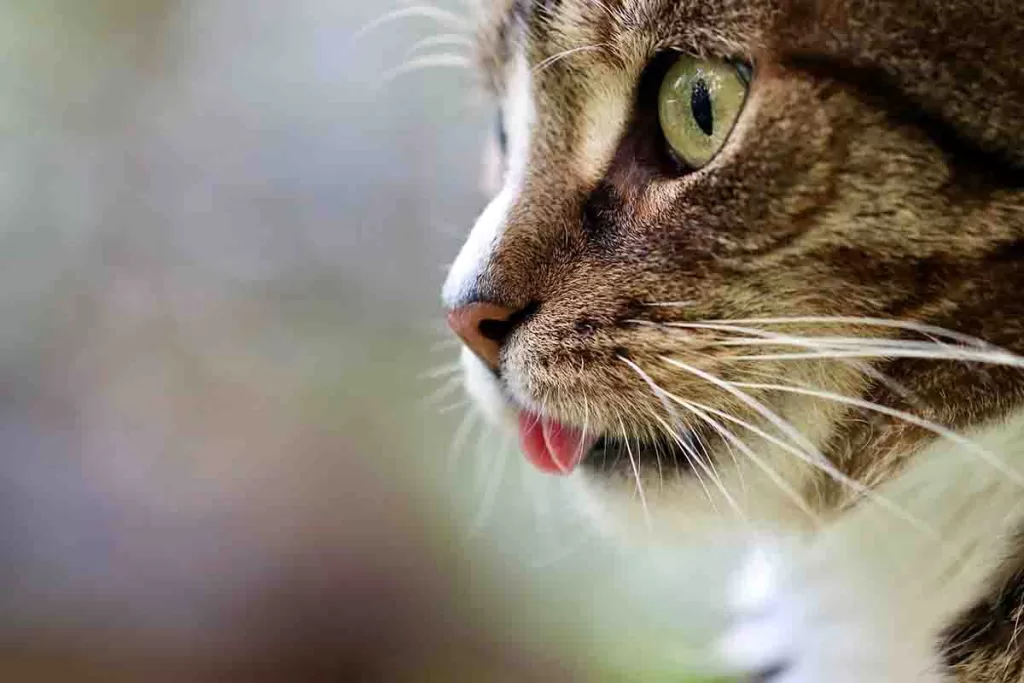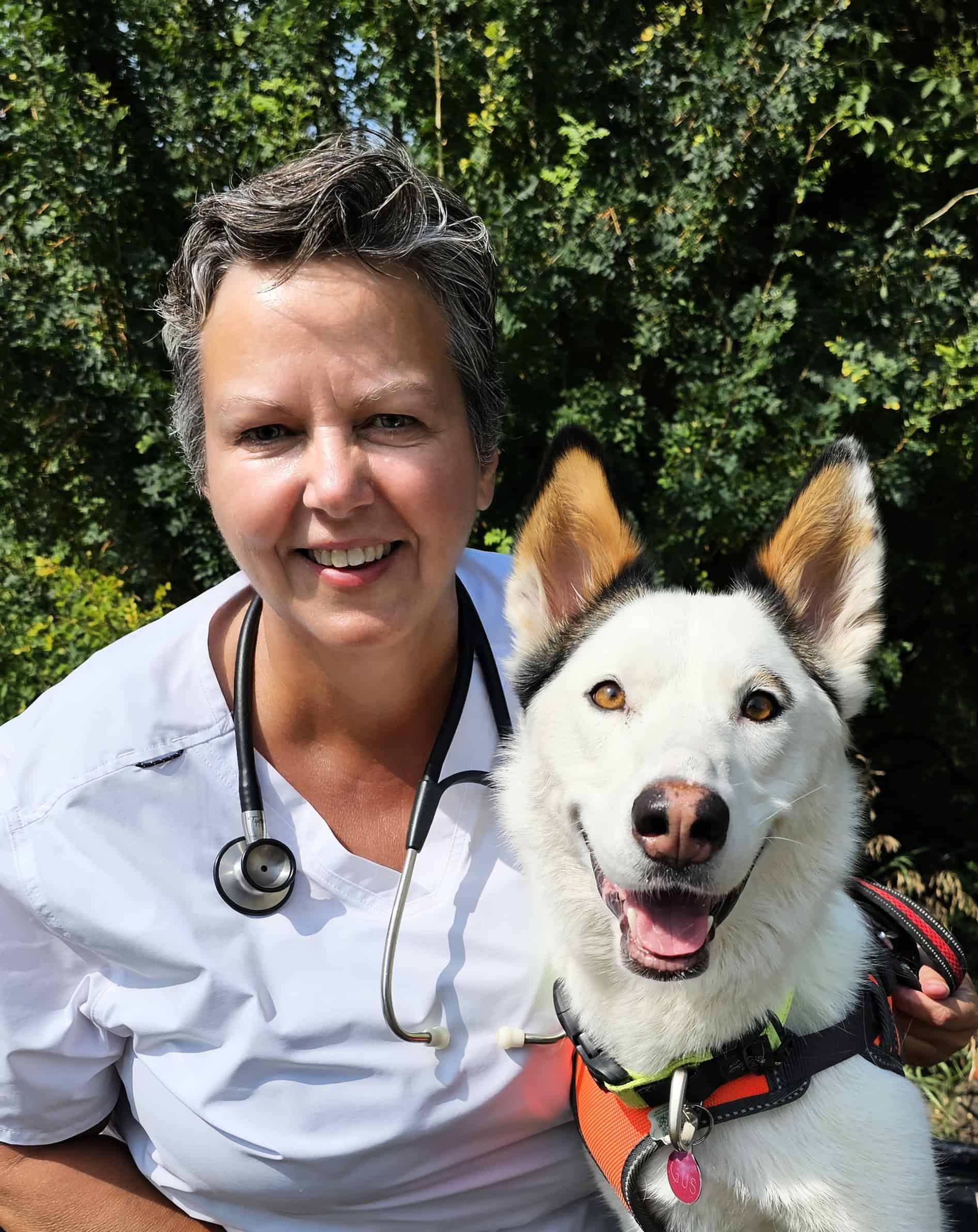Last updated on April 20th, 2023 at 11:01 pm
If you own a cat, chances are you have noticed it drooling now and then. You may have even wondered why it is drooling and if you should be worried.
Cats drool for a variety of reasons, such as motion sickness, stress, dental issues or in response to tasting something bitter. It can also be a sign of a more serious medical condition. Unusual excessive drooling warrants a visit to your vet right away to rule out any underlying health problems.
In this article, we will get to the bottom of common reasons why cats drool. Read on for more information about causes of excessive drooling in cats and when you should be concerned if it’s happening with yours.
When Is Cat Drooling Normal?
I’ve noticed that my own cats sometimes drool when they are relaxed and happy. This usually happens when they are very relaxed – they will be purring loudly and kneading up a storm!
My daughter had a Manx cat that would drool ridiculous amounts when she was purring and kneading, enough to leave a puddle. I always thought she was just simply forgetting to swallow because she was so focused on her kneading.
Whether these relaxed cats are producing more saliva when they are happy and content or just forgetting to swallow, this type of drooling is perfectly normal. They often start this behavior as kittens and continue it into adulthood.
However, if your cat has never drooled before and you suddenly notice that it is doing so, you need to be looking into what else could be causing the drooling.
Why Would A Cat Suddenly Start Drooling?
If your cat is suddenly drooling excessively, this could signal a problem.
Like people and dogs, cats will drool if they are feeling nauseous (e.g. drooling before vomiting). This could be something as simple as getting motion sick during car rides, or the nausea can be a result of an underlying medical condition that is making them feel ill.
As well, cats may drool if their mouths hurt. This may be due to gum disease, rotting teeth, injury, or even cancer. Some cats will also drool when stressed.
Let’s look at these in more detail.
Cats Drool Because Of Dental Disease
One of the most common causes of drooling in cats is dental disease. Gingivitis and tooth decay can lead to pain inside a cat’s mouth, which can then cause excessive salivation or drooling.
Cats with dental disease will also often have bad breath. They may be eating less, as the pain makes it hard for them to eat. Other signs of pain in the mouth may be a preference for soft food over hard kibble, dropping food while trying to eat, or tilting the head so it is chewing on one side only.
I recall one patient whose only symptom was difficulty yawning. He would stop his yawn midway and let out a weird chirp. Luckily, his owner was astute enough to notice something wrong and brought him in to be checked out (he had two very rotten molars that needed to be extracted).
Dental disease does not go away by itself, it does not improve on its own, and it is very painful to live with. If you notice any of these symptoms in your cat, you should take them to the vet right away for treatment.
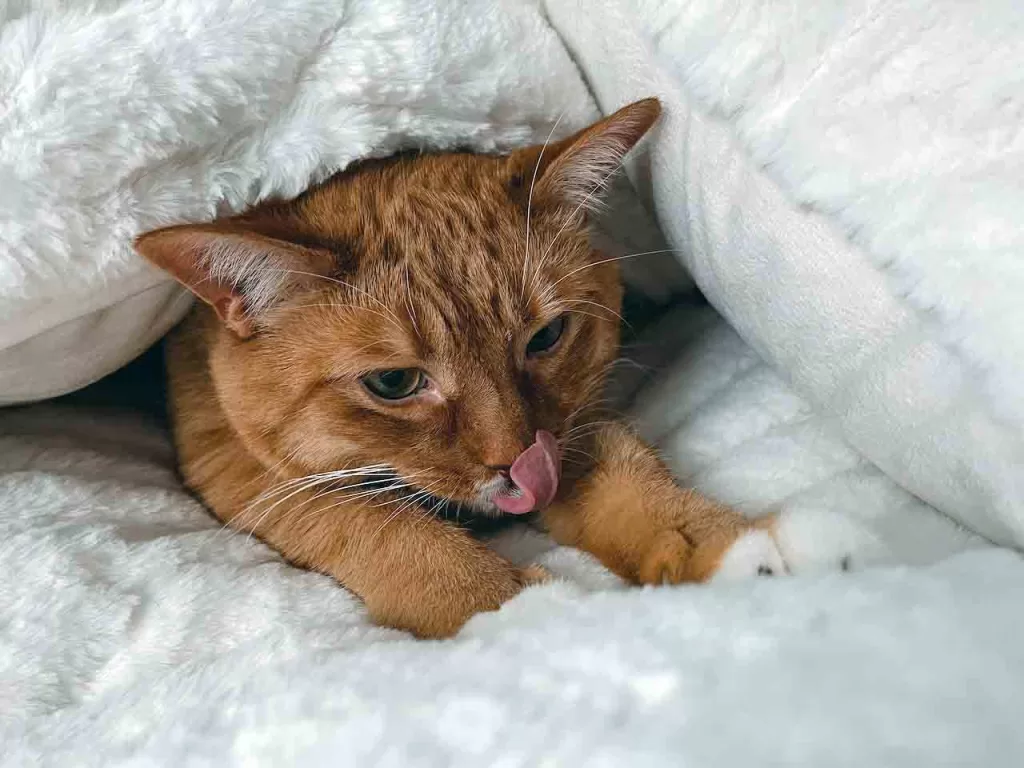
Cats Drool When Experiencing Motion Sickness
Your cat may drool during a car ride, or if you are carrying them around the house. If your cat is drooling when in motion but appears completely normal otherwise, it could be suffering from motion sickness.
Motion sickness, fortunately, is easily remedied. Once the motion stops, the motion sickness soon goes away. If stopping is not an option, e.g. you are taking a road trip with your cat, talk to your veterinarian about an anti-nausea medication you can give them for the ride.
Cats May Drool When Stressed
Sometimes cats drool when they feel stressed or anxious.
If you notice that your cat’s drooling is worse during certain situations, like when you have company over, when the vacuum cleaner is running, or when you place them in a cat carrier in preparation for a trip to the vet, then stress could likely be the cause.
I used to have a cat that absolutely hated getting her claws trimmed. She would growl and complain the entire time – and drool copiously! There was absolutely no doubt that her drooling was entirely stress-related.
Like motion sickness drooling, removing the source of the stress will eliminate the drooling, and there is little you need to be concerned about beyond that.
Upper Respiratory Disease Can Cause Cats To Drool
Upper respiratory disease is an infection in the nose, throat, or sinuses of your cat that can cause it to drool. Several viruses cause upper respiratory disease in cats, which can result in oral ulcers that are painful and lead to drooling.
If your cat’s drooling is accompanied by other symptoms like runny eyes, sneezing, coughing, or loss of appetite, then this could indicate an upper respiratory infection. Cats that are sick should be examined by a veterinarian so appropriate treatment can be given.
Fortunately, these diseases can easily be prevented by vaccination.
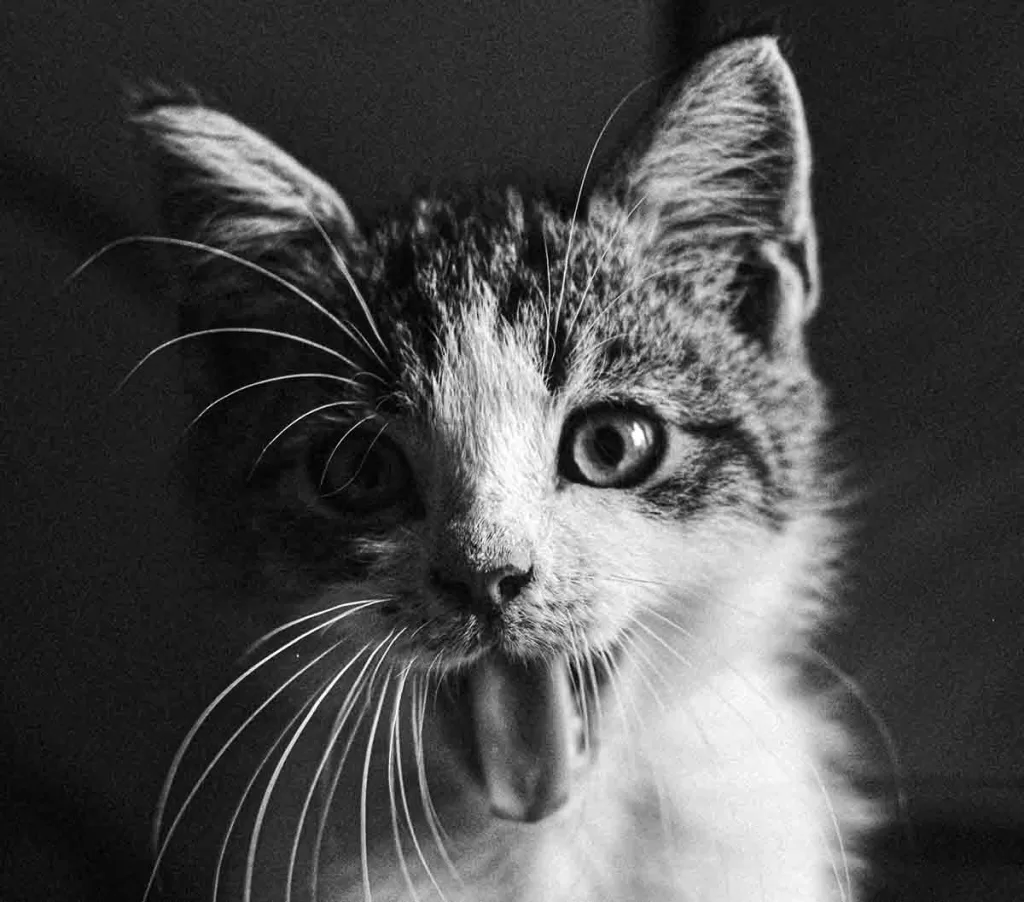
Cat Drooling Can Be Caused By Nausea
Cats that are feeling nauseous may drool due to feelings of discomfort. Nausea can be caused by a variety of things, including hairballs, foreign objects stuck in their throats or intestines, gastrointestinal disorders, and other health conditions.
- Hairballs: Cats groom themselves often and can get hairballs, which are clumps of swallowed fur that can irritate the stomach and cause drooling.
- Object stuck in the throat: Complete obstruction of the esophagus means that saliva can’t be swallowed, therefore the cat will drool. If the object is smaller, like a string, there may be no obstruction but the presence of it can cause nausea and irritation that also leads to drooling.
- Object stuck in the intestine: Blockage of the intestine is a life-threatening condition. It can cause intense pain and nausea, which may lead to excessive drooling.
- Gastrointestinal disorders: There are a variety of conditions of the stomach and intestines that lead to nausea, which then leads to drooling. A few of these include inflammatory bowel disease, food poisoning, bacterial or viral infections, and food allergies.
- Other health conditions: Certain medications or toxins can also lead to nausea and drooling in cats. There is also a range of medical conditions that cause feelings of nausea, including diabetes, pancreatitis, kidney disease, and liver problems.
If you notice your cat drooling excessively or if their drool is accompanied by other symptoms such as vomiting or lethargy, it’s important to get them checked out by a vet right away.
Injury To The Mouth Can Cause Drooling In Cats
Cats can injure their mouths in a variety of ways – from accidents to fights with other cats. If your cat has been injured, it may drool as a result of the pain and discomfort.
Broken teeth, cracked or fractured jaw bones, ulcers, and lacerations can all cause your cat’s mouth to be painful.
If you suspect your cat has injured their mouth, you will need to take them to a veterinarian to get it examined properly.
Oral Cancer Can Cause Drooling In Cats
It’s also possible that your cat is drooling due to oral cancer. Oral cancer can cause ulcers and lesions in the mouth, which will likely cause pain and lead to drooling. It can also result in masses inside the mouth that make swallowing difficult.
In addition to excessive drooling, other signs of oral cancer in cats include bad breath, difficulty eating or drinking, pawing at their face, and refusal to open their mouth.
Cats Drool If They Taste Something Bad
Anyone who has ever tried to give a cat medicine can relate to this one – cats drool profusely if they taste something bad (especially bitter). The response is so immediate and profuse that within seconds the cat seems to be foaming at the mouth.
This instinctive response helps them to prevent swallowing something that could be toxic. If you see your cat suddenly and profusely drooling, check immediately to see if they’ve been chewing on something that could be bad for them.
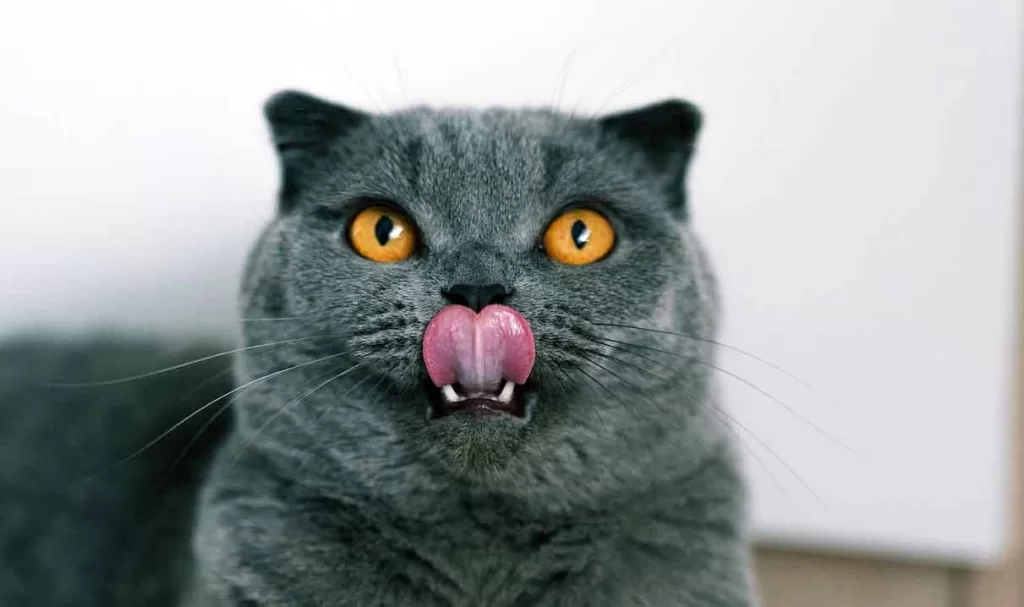
Conclusion
While cat drooling can sometimes be normal, or result from relatively uncomplicated causes like motion sickness or stress, it can also point to a number of underlying issues.
Many of the causes of sudden, abnormal drooling in cats are related to health conditions that need immediate veterinary attention, so it’s important to take your cat to the vet if you notice excessive drooling.
Your vet will be able to pinpoint the cause of drooling and help your cat get back on the road to feeling better.
Disclaimer: This article is intended for information purposes only, and does not constitute medical advice. Always consult your veterinarian if you have specific concerns about your pet’s health.

